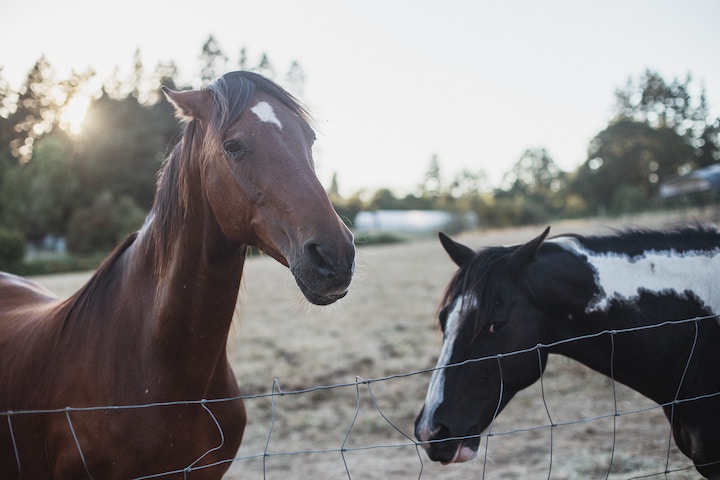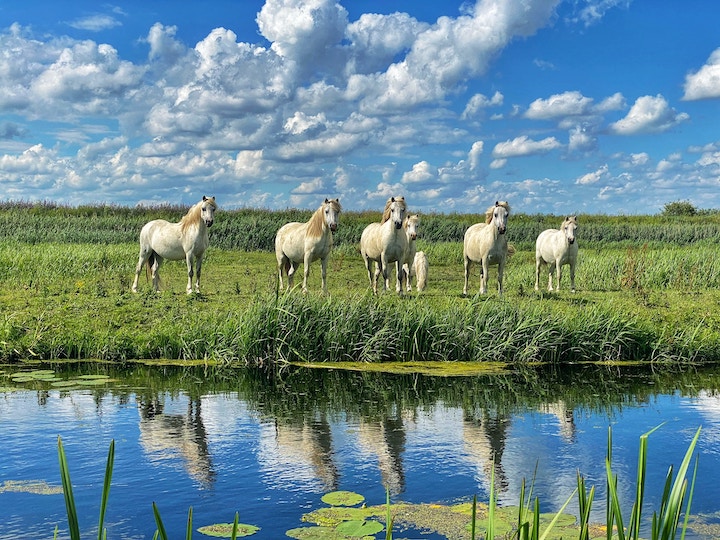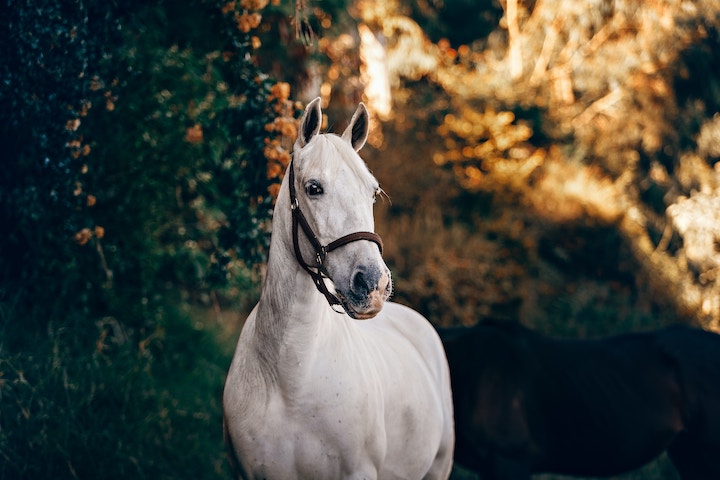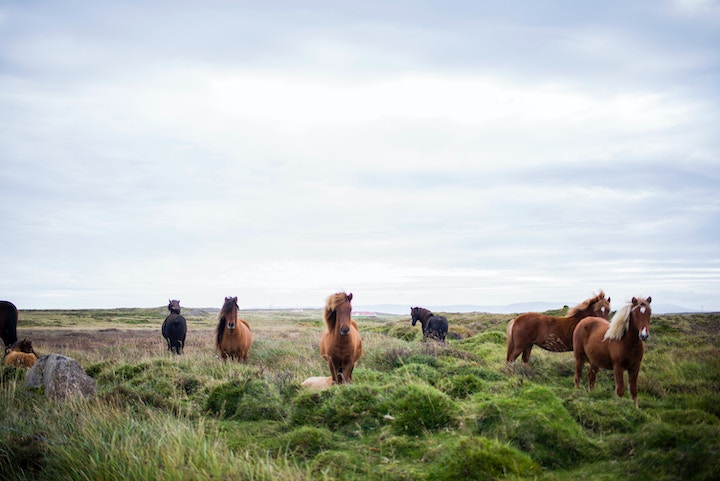Are you familiar with the phrase “beating a dead horse”? This idiom is often used to describe a futile effort or action, but have you ever stopped to think about the deeper meaning behind it? The term “dead horse” has been used in various contexts throughout history, each with its own symbolism and connotations. From ancient fables to modern day expressions, the dead horse has been a recurring symbol that carries a significant meaning.
In this blog post, we will be unpacking the layers of dead horse meaning and delving into the rich history and symbolism behind this phrase. So, saddle up and join us on this journey as we explore the different interpretations and implications of the dead horse.
Key Takeaways
- The dead horse signifies futility, urging us to reassess futile efforts and endeavors.
- It symbolizes closure, exhaustion, inertia, and wisdom, each interpretation depending on the context.
- The dead horse serves as a mirror for transformation and renewal, urging us to embrace new beginnings.
- It signifies resilience and urges self-reflection on our actions and choices.
- In dreams, a dead horse symbolizes a need for change and growth.
- In Shamanic practices and various cultures, it holds deep spiritual significance and represents the cyclical nature of life.
- In astrology, particularly for Sagittarians, it’s a call for introspection and realignment.
Dead Horse Meaning
1. A Sign of Futility: The dead horse meaning is most often associated with futile efforts or pursuits. It serves as a metaphor for investing time and energy into an endeavor that is bound to be unfruitful or has already failed, urging us to reassess our actions.
2. An Indication of Closure: The deceased horse is also seen as a symbol of closure, marking the end of a phase or pursuit. It represents the conclusion of a chapter in life, signaling the termination of outdated practices or relationships.
3. A Symbol of Exhaustion: The dead horse can be a symbol of exhaustion or depletion. It suggests that one’s resources, whether physical, emotional, or mental, have been completely drained, indicating the necessity for rejuvenation and recovery.
4. An Emblem of Inertia: In some contexts, the dead horse signifies inertia or stagnation. It denotes a state of being stuck in a rut, unable to progress or evolve, highlighting the need for a change in perspective or direction.
5. A Beacon of Wisdom: Finally, the dead horse stands as a beacon of wisdom. It represents the lessons learned from failed endeavors or concluded phases, encapsulating the knowledge gained through experience and trial, and the wisdom that stems from understanding our missteps and misadventures.

Dead Horse Symbolism
1. A Mirror of Transformation: The dead horse serves as a mirror reflecting our journey of transformation. It symbolizes the need to shed our old skins, making room for the growth that new experiences and challenges bring. It is a powerful emblem of metamorphosis, urging us to transition gracefully through the seasons of life.
2. An Avatar of Renewal: This symbol is also an avatar of renewal. The demise of the horse, often perceived as a negative event, is a reminder of the inevitable cycle of life. It prompts us to perceive endings as opportunities for fresh beginnings, renewing our perspectives and endeavors.
3. A Symbol of Sacrifice: The dead horse can also represent sacrifice. Just as a horse gives its all till the end, it symbolizes the sacrifices we make in our lives to move forward. It encourages us to acknowledge these sacrifices and learn from them.
4. A Testament of Resilience: Dead horses are a testament to resilience. Their stationary state serves as a reminder of the trials and tribulations we face, the failures we endure, and our ability to stand strong despite the adversities. It underscores the power of resilience in overcoming life’s challenges.
5. A Signpost of Reflection: The dead horse acts as a signpost urging us to reflect on our actions and choices. It prompts us to pause, introspect, and ensure that we are not investing our efforts in vain, but channeling our energy towards meaningful pursuits that align with our life’s purpose.
Also Read – White Horse Dream Meaning: Interpretations And Real-Life Applications
Dead Horse In Dreams
Witnessing a dead horse in your dreamscape can undoubtedly stir unease, but fear not. Such a vision is less a harbinger of despair and more an emblem of transition and evolution. It poses an intriguing question for you to ponder – where in your life are you clinging to things that have reached their expiration?
Are there areas in your life where change is long overdue, yet you resist? A nocturnal encounter with a deceased horse is a gentle prod, encouraging you to release the old, the redundant, and make room for new opportunities.
It serves as a nudge to shed off stagnant patterns and charge towards renewed avenues of growth. The symbolism is compelling – the horse, known for its power and speed, lies motionless, signifying that there are times when we must embrace stillness to reassess our paths and reorient ourselves.
So, the next time a deceased horse visits you in your dream, see it as an invitation to introspection and an opportunity for growth. It’s a call to reclaim your vitality by letting go of the obsolete and embracing the thrill of the unknown. So, welcome this symbolic messenger with an open mind, and use its guidance to steer your life towards more meaningful directions.
Horse As A Spirit Animal
The horse spirit animal, brimming with strength, zeal, and determination, is a treasured guide in the spiritual realm. If you’ve been fortunate enough to be chosen by this spirit guide, you are emboldened to gallop unbridled towards your ambitions. However, encountering a dead horse as your spirit animal ushers in a different message.
It’s an invitation to pause amidst the rush, to dismount from the saddle and ponder your chosen path. This manifestation encourages introspection – are you investing your energy wisely, or are you running aimlessly, squandering your vigor on fruitless pursuits?
The dead horse spirit guide isn’t about halting your progress, but about refining your journey. It gently reminds you to conserve your energy, to steer clear of draining endeavors, and instead, channel your passion into pursuits that truly mirror your spirit’s calling. It’s not a signal to stop, but to reassess, redirect, and renew your journey with amplified wisdom and discernment. So, if you encounter this spirit animal, embrace its wisdom as it helps you navigate life’s racecourse more thoughtfully and authentically.

Dead Horse In Various Cultures
The symbolism of a dead horse diverges in different cultural narratives. In the epic sagas of Norse mythology, we encounter Sleipnir, the fabled eight-legged horse belonging to Odin, the chief of gods. Sleipnir possessed the unique ability to traverse between the realm of the living and the afterlife, making him a powerful symbol of transition and metamorphosis. This affirms the underlying theme of the dead horse as an embodiment of transformative journeys.
In the rich tapestry of Native American traditions, the perspective shifts. The death of a horse here is observed with deep reverence and poignant solemnity. In their lore, horses are often perceived as brave warriors, and their demise is seen as the end of a courageous soldier. Yet, there’s a twist. This sorrowful event is also an occasion for celebration, recognizing the horse’s valiant sacrifices and honor. It’s a heartfelt acknowledgment of the cyclical dance of life and death, hinting at the same paradox we’ve previously explored – loss and rebirth.
The interpretation of the dead horse in these cultural contexts allows us to perceive the symbol through a variety of lenses, each offering a unique insight into the profound meanings it carries. Thus, despite the different perspectives, a common thread weaves these narratives together – the recognition of the dead horse as a poignant reminder of life’s inevitable cycles, the transformative power of endings, and the promise of new beginnings.
Dead Horse In Shamanic Practices
Immersing into the realms of shamanic practices, the symbol of a dead horse takes on an even deeper spiritual connotation. The death of a horse is seen as an important marker on one’s spiritual journey, signifying evolution and growth. Shamanic traditions, deeply rooted in the belief that energy is indestructible and ever-transforming, view the demise of the horse as a potent signal for transition.
When the horse’s life force ebbs, it’s not a termination but a transformation. The spirit of the horse doesn’t vanish; instead, it morphs into a guiding light for those navigating their own spiritual paths. The horse, once a lively embodiment of vigor, now transitions into a profound spiritual guide, helping individuals decipher the intricate twists and turns of the soul’s odyssey.
The role of the dead horse in shamanic practices is akin to a lantern in the dark, illuminating the way towards spiritual awakening. It represents a shift from a physical being to a spiritual mentor, leading the way towards higher consciousness and self-realization. It’s like a compass, pointing out the direction for those caught in the complex maze of their spiritual journey.
This transformative perspective on the dead horse symbolism invites us to reconsider our perceptions of endings. In the shamanic context, the horse’s death signifies not an end, but a metamorphosis, a beginning of a different spiritual journey. It is a beacon of guidance, a symbol of wisdom that aids in maneuvering through the vast, often bewildering landscape of the soul’s voyage.
Check Out – Horseleech Spiritual Meaning, Symbolism, and Totem
Connecting With The Dead Horse Energy
Delving into the realm of astrology, the horse plays an intriguing role. Notably, the horse is directly linked with the ninth astrological sign of the zodiac – Sagittarius. Known for its adventurous spirit, enthusiasm, and desire for freedom, Sagittarius embodies the essence of the horse’s vivacious spirit. So, when one encounters the symbol of a dead horse in this astrological context, what could it imply?
The dead horse can serve as a symbolic wake-up call for Sagittarians. The inherent Sagittarian nature to embrace every opportunity can sometimes lead them down paths that may not necessarily serve their highest good. The symbol of a dead horse then urges these high-spirited archers to pause, take a moment to breathe, and reassess their trajectory.
Just like the energetic horse must eventually rest, Sagittarians too must realize the importance of downtime in their fast-paced lives. The dead horse, in this case, is a gentle reminder for them to practice balance between their zest for life and their need for rest and rejuvenation.
Also, the symbol of a dead horse calls Sagittarians to evaluate their endeavors, to make sure they are not expending their energy on futile pursuits. It invites them to ensure their actions align with their inner wisdom and true purpose.
The presence of a dead horse in Sagittarius’ astrological sphere does not translate into an end of their vibrant journey. Instead, it signifies the potential for growth, a nudge to slow down, reassess, and redirect their energy towards meaningful pursuits, aligning more authentically with their inherent dynamism and adaptability. It’s a profound symbol that urges Sagittarians to strike a balance between their free-spirited gallop and necessary moments of stillness.

Conclusion
As we conclude our exploration of the rich symbolism and multi-faceted meanings of the dead horse, it’s evident that this enigmatic figure in our collective consciousness is a profound reminder of life’s inevitable cycles. Whether it’s perceived as a symbol of futility, closure, transformation, or renewal, the dead horse presents a mirror to our own journeys, prompting introspection and fostering growth.
From its role in dreams to its spiritual significance in shamanic practices, its appearance in diverse cultures, and its relevance in astrology, the symbol of a dead horse carries a compelling message. It invites us to pause, reassess, and evolve, encouraging us to approach life’s challenges with resilience and wisdom.
So, the next time you encounter this symbol in any context, rather than dismissing it as a negative omen, view it as a potent symbol for transformation and growth. Remember, just as the horse transitions from a physical being to a spiritual guide, we too have the potential to evolve and transform, turning life’s endings into powerful beginnings.
Frequently Asked Questions
- What does dreaming of a dead horse mean?
Dreaming of a dead horse symbolizes transition and growth. It’s a gentle nudge, encouraging you to release the old, stagnant patterns, and embrace new opportunities.
- How does the dead horse symbolize wisdom?
The dead horse stands as a beacon of wisdom, encapsulating the lessons learned from failed endeavors and the wisdom that stems from understanding our missteps and misadventures.
- Is the dead horse considered a negative symbol in any culture?
While interpretations may vary, most cultures perceive the dead horse as a symbol of transformative journeys, marking the end of a phase, but also the promise of new beginnings.
- What does it mean if a dead horse is my spirit animal?
This manifestation encourages introspection. It reminds you to conserve your energy, steer clear of draining endeavors, and channel your passion into pursuits that truly mirror your spirit’s calling.
- What’s the connection between the dead horse and the zodiac sign Sagittarius?
The dead horse serves as a wake-up call for Sagittarians, reminding them to practice balance between their zest for life and their need for rest, while also ensuring their actions align with their inner wisdom.

